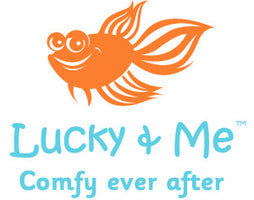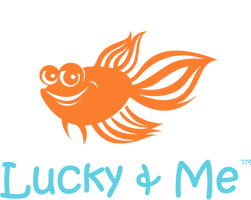
Finding kid’s clothes that you can trust were made in an ethical and sustainable way is a confusing experience. With so many different certifications — GOTS, OEKO-TEX, Fairtrade, and Organic, to name a few — it’s hard to remember what each label means. This handy overview breaks down what each of the major certifications guarantees, so you can get your child clothes that work for them and align with your values.
Certified Peace of Mind
Parenthood can be overwhelming. Minor, daily decisions — what to eat, what to wear, what to watch — can suddenly seem daunting when you’re making them for your child. Everybody seems to have judgments about what’s best, whether well-informed or not, and they’re not shy to tell you about them. When you start to research these small, daily choices, the considerations often broaden and deepen, leading to endless new questions but few practical answers.
Take clothes. Search for something as simple as “comfortable clothes for kids,” and you may find yourself lying in bed on your phone, way past your bedtime, reading 20 comments deep through a heated argument about dyes and organic cotton on a parenting forum. Feeling just as uncertain as before but considerably more guilty, with a sprawling warren of internet rabbit holes laid out in front of you, you may begin to feel that choosing the right clothes to buy for your child is a more complicated question than you had originally appreciated.
Unfortunately, there’s something to that. Whereas before parenthood you might only have considered a few factors like style, fit, comfort and price, now there is a small human being with needs and preferences to consider, which may be quite different from your own. Maybe your child has sensory issues, and you find yourself thinking about seams in a whole new way. Maybe your child has eczema, meaning that synthetic fabrics, dyes and other chemicals that never bothered you bring on a rash and discomfort for them. Maybe your child has none of these issues, but you’d rather avoid the noxious shirts that are making other children break out in rashes and just buy responsibly-made clothes that you don’t have to worry about. Maybe after researching these questions you’re wondering, what’s in those clothes, anyway?
That’s a very good question. Go a little further down that particular rabbit hole, and you’ll find that many clothes are doused in chemicals like flame retardants, PFAS chemicals, azo dyes and formaldehyde, which are known to negatively impact health, especially in those with allergies or sensitivities. You’ll find that the farming practices used to grow cotton and other fibers can result in degraded soils and runoff of fertilizers and pesticides into the water supply. You’ll find that clothes are often made in sweatshops with hazardous working conditions, very low pay, and sometimes child labor. As the veil of flashy advertising unravels, you’ll find a global textile industry that can all too often be exploitative and toxic.
While the problems in clothes production are incredibly complex, the solutions are simple for a person just trying to buy ethical, sustainable, nontoxic clothes. That’s where certification comes in.
Textile Certifications
You don’t have the time to consider every chemical or processing practice you’d like to avoid in the clothes you buy, or wade through an entire supply chain and vet each supplier, but certifiers do — that’s their whole job. To become certified, clothing companies must go beyond the legal requirements for labor and environmental practices, which can be spotty or poorly-enforced, particularly in global industries like textile manufacturing. They must submit to thorough vetting by the certification company, through testing of the chemicals used in processing and their residues in fabrics, on-site inspections, or both, to ensure they’re compliant with the standards included in that certification. Companies pay for the privilege of being inspected and certified in this way because they know their customers will pay a premium for clothes that were made ethically and responsibly, if they have the receipts to prove it.
Similar to the “Organic” label on food, a certification on a clothing label is a simple, understandable guarantee that the clothes you’re buying have been vetted and meet the standard. However, what that standard is exactly differs between certifications. There are over 100 textile certifications globally today, including more niche standards, such as those for items made with leather, down or mohair. Thankfully, there are only a few major certifications to consider:
- USDA Organic certification (such as OCS 100) means that the fibers in the textile (cotton, linen, wool, etc.) were grown organically, without synthetic fertilizers and pesticides
- OEKO-TEX Standard 100 certification guarantees that finished textiles do not contain harmful substances (listed in their extensive criteria catalog)
- Fairtrade certification ensures the labor rights of workers across the supply chain
- GOTS Organic certification, the most stringent and comprehensive certification for textiles, enforces a strict set of social and environmental standards across the supply chain from seed to clothes hanger. GOTS (which stands for Global Organic Textile Standards) also offers a “Made with Organic” label, ensuring that at least 70% of the fibers are grown organically (rather than the 95% standard of GOTS Organic)
Each of these standards speak to different priorities consumers may have. If your concern is the environmental impact of growing the cotton in your clothes, then the USDA Organic label has you covered. But this label is focused on the farm; organic clothes can still be processed with chemicals like azo dyes or flame retardants, and the organic label says nothing about the working conditions along the supply chain.
If the working conditions, rights and safety of workers making your clothes is important to you, then Fairtrade certification can guarantee that worker protections (such as workplace safety and the right to unionize) are in place. But this label is focused only on the workers; Fairtrade certified clothes need not be organic, and can still be treated with unhealthy chemicals during processing.
If you’re worried about what toxic chemicals may be lurking in a shirt, OEKO-TEX Standard 100 certification can offer peace of mind. However, this certification is focused on chemical testing of the finished product; the cotton in that shirt can still be grown with synthetic pesticides and fertilizers, and there’s no guarantee that the companies along the supply chain are treating their employees fairly. While the OEKO-TEX Standard 100 is the most common certification from OEKO-TEX, there are several other standards provided by the company. For example, OEKO-TEX can attest to organic certification, and the “GMO not detectable” label guarantees that the cotton in the clothes have tested negative for genetic modification (GMOs are also prohibited in all organic products). The “Made in Green” standard vets the entire supply chain for social and environmental responsibility as well, but does not require organic fiber production.
If you’re feeling like the limitations of each of these certifications have traded one frustrating and complicated research question for another, and you just want clothes that were made ethically and responsibly across the board, then GOTS Organic certification is for you. GOTS Organic certification offers a comprehensive and deep vetting of every step along the supply chain, and accounts for social and environmental sustainability, organic production, and an absence of toxic chemicals in processing. Rather than prohibiting a list of individual chemicals, GOTS bans whole classes of chemicals like phthalates or brominated flame retardants, operating on a precautionary principle rather than waiting for evidence of health effects of particular chemicals within a class. In addition to the environmental protections offered by the organic farming of fiber, GOTS certification requires that water used in textile processing be treated before being returned to the watershed.
Enforcement of GOTS certification is strict, combining annual on-site inspection and residue testing. Put simply, GOTS Organic certification offers you the confidence that your child’s clothes are made responsibly, without an asterisk at the end of that sentence.
Proceeding with Confidence
Parenting often involves looking into the ugliness of the world to protect your child from it. One moment, you’re wondering why your kid seems to be developing a rash every time they wear a particular shirt. The next, you’re up at night reading about toxic dyes poisoning the rivers of Bangladesh. Even if you were already aware of the problems in the textile industry, it can be distressing to discover the extent of it, especially when you’re trying to do right by your kid.
It’s not all bad news. Environmental and social activists have been working for decades to fix what’s broken in the global textile industry. But while both voluntary and regulatory moves have been made in recent years to clean up the global textile supply chain, and children’s clothes in particular, these efforts fall short of the standards set by certifications like GOTS Organic.
In fact, certifications like GOTS have played a big role in improving the environmental and social footprint of the textile industry. By creating a valuable label that commands a price premium, certifications like GOTS provide an incentive for companies to make clothes more responsibly. Purchasing certified sustainable clothes is voting with your dollars for a more just and sustainable global textile industry. Even though making clothes sustainably is more expensive, you’re showing clothes companies that customers are willing to pay the price for responsible production.
For busy parents, textile certifications like GOTS offer peace of mind that the clothes on their children’s backs won’t irritate their skin or exacerbate allergies. They offer freedom from the worries haunting internet rabbit holes, and guilt about the damage you might be doing to people and the environment half a world away. Certifications guarantee that clothes are made in an ethical, healthy and environmentally sustainable way.

Author bio:
Alex Taylor, PhD is a Chicago-based science communicator with a passion for making complex ideas understandable, relevant and engaging for diverse audiences.

